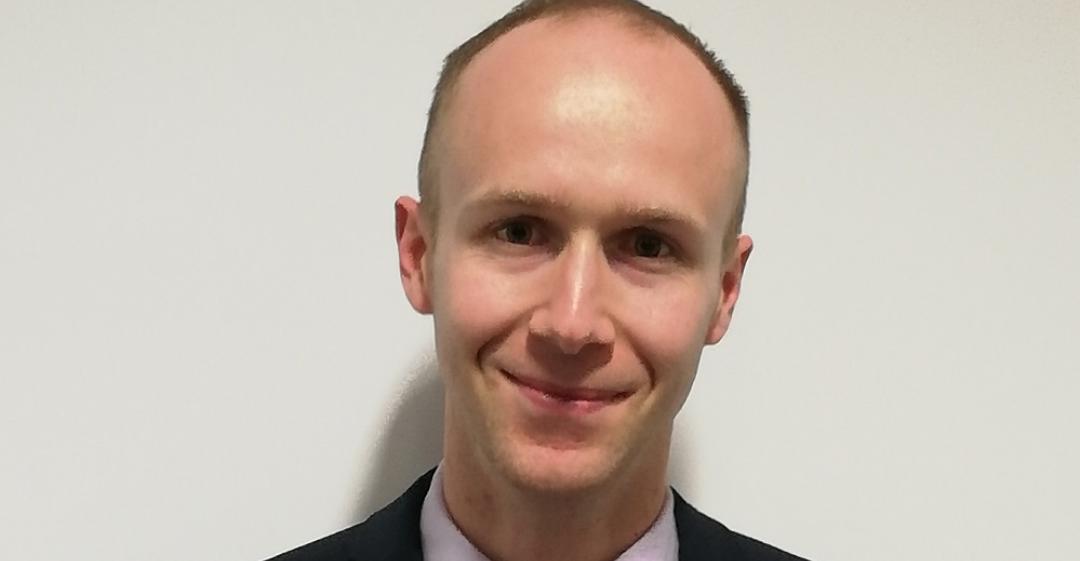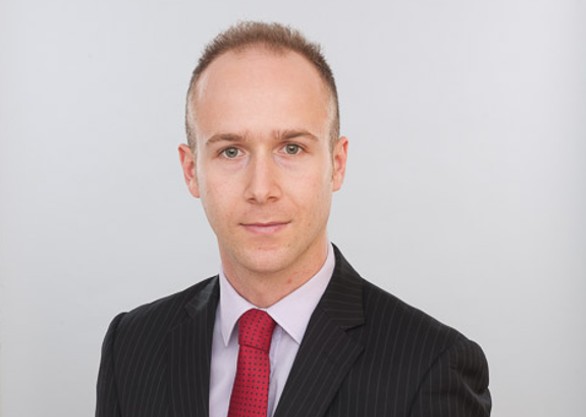“I liked my work, but I felt there was something more out there for me.”

What work were you doing previously?
I was a commercial lawyer at a top-50 law firm.
I'd spent six years in Law. Prior to this, I'd spent just under a year on the Sky Finance Graduate scheme, which I'd realised was definitely not for me.
What are you doing now?
I'm a faculty coordinator at a school in South London.
In short, I'm in charge of the behaviour, attendance, welfare and safeguarding of nearly 200 11-16 year olds. In addition, I teach History at the school and am taking on additional responsibilities from September.
Why did you change?
I'd always had an itch to teach.
I'd come across the Teach First Leadership Development Programme and thought it looked like a great opportunity to see if teaching was for me. I wanted to see if I could make an impact in a school within a deprived area.
The programme lasts for two years and helps candidates forge links with other sectors, so I thought it could be a great way for me to take a 'sabbatical' from the law and discover if teaching was what I really wanted to do.
When was the moment you decided to make the change?
To be honest, it came out of nowhere.
I wasn't unhappy in my job as a lawyer. I was doing well, worked with a great team and felt comfortable. I just thought that I might enjoy a change.
Are you happy with the change?
I'm absolutely delighted.
So few people get to say that they love their job and I'm one of those people! I always used to say that law was a 'seven or eight out of ten' job. It was intellectually stimulating and challenging, but I primarily worked within contract law, which isn't always the most interesting. The key difference for me now is that every day is different and I constantly have to reflect on the decisions I make.
I also love the physical nature of the job – I'm always on my feet at school and there is never any opportunity to be lazy!
What do you miss and what don't you miss?
I miss focusing on the attention to detail required to be a successful lawyer.
For example, I miss the intellectual stimulation I used to get from making minor amendments to a contract that would make a huge impact on a deal. Then again, many of the commercial contracts I worked on as a lawyer were very similar. In some ways, this was empowering as it meant that I knew what I was doing and what advice to give. On the other hand, it could become quite dull doing the same thing over and over again.
I miss feeling like I know a lot about what I do! I'm never 'comfortable' as a teacher – there's always something new to reflect on and learn.
I miss my old team and enjoy meeting up with one of the partners that I used to work for. I left on good terms and enjoyed working with them.
I don't miss sitting at a desk for hours on end! I'm a very physical person and this is the first job I've ever had that doesn't require lots of sitting down, which I love!
How did you go about making the shift?
I simply applied for the Teach First Leadership Development Programme, a year in advance of starting it.
Once I'd completed the application and had been successful at the assessment centre, my partner and I had a year to figure out if teaching was truly a viable option.
In addition, if your application for the programme is successful, you have to complete preparation work before you start teaching. This included spending a week in a secondary school, which I did while I was still working as a lawyer (using a week's leave). Once I'd done this, I knew that it was worth pursuing a career in education.
What didn't go well? What wrong turns did you take?
I didn't truly consider the financial impact of having eight weeks of not being paid.
This was the time between leaving my post as a lawyer and getting my first pay cheque as a teacher. Although the Teach First programme is a salaried training route, you're not paid during the six-week Summer Institute that you have to do before you start in your placement school.
The financial strain on my partner (who was still paying London living costs at the time) was substantial.
How did you handle your finances to make your shift possible?
This was the biggest issue.
I took a substantial pay cut to go into teaching. Although I'm not driven by money, it was nonetheless daunting; an unqualified teacher's salary (what you're paid in your first year of of the programme) is substantially lower than what a lawyer earns.
Therefore, I began saving for about six months before starting my teaching job. Then, my partner and I moved out of our flat in an affluent area of North London and found somewhere more affordable in South London, near where I would be teaching.
However, this still wasn't enough to make it bearable! I have completely changed my lifestyle since I quit the law. I now love the lifestyle that I lead (for example I no longer drink and am very much focused on keeping fit), but at first it was a bit of a culture shock.
That said, Teach First funds the entire Postgraduate Diploma in Education and Leadership (PGDE) – internationally recognised and worth double the credits of a PGCE. This can be topped up to a Masters at a reduced cost.
What was the most difficult thing about changing?
Working with young people in a tough South London school is extremely challenging, particularly when you're coming from a corporate background.
However, the biggest challenge for me was developing my subject knowledge. I had to hit the ground running, and it was tough as I'd spent the last six years of my life becoming an 'expert' in Law. When I first began teaching, my days of studying History seemed a long time ago, so ensuring that I was able to stay one step ahead of my pupils was essential.
What help did you get?
My team within my school were (and continue to be) outstanding.
I know that if I need anything, they're always there to assist.
In addition, the academic support that I got from University College London (where I did my PGDE and am doing my MA) was brilliant. My tutors helped me think about History teaching in ways that I would never have considered without their intervention.
I've had access to three dedicated support links – a professional mentor (at the school), academic tutors (at university) and one-to-one coaching from Teach First.
What resources would you recommend to others?
Go to any Teach First talks / seminars.
They're great at providing prospective teachers with a platform to develop their career and leadership skills.
What have you learnt in the process?
That it's usually worth following your gut.
It's been risky, but also rewarding. I liked being a lawyer, but I felt as though there was something more out there for me and that teaching would tick a lot of boxes. I've never looked back since then. It's a great career.
What do you wish you'd done differently?
I wish I'd spent more time reading what the GCSE History curriculum entailed before starting at my school.
I'd assumed that it would be 'easy' to teach GCSE History as I'd got an A* in it, but it's completely different to when I did my GCSE!
What would you advise others to do in the same situation?
Plan before you take the plunge!
If you think teaching is for you, go and have a look round schools first.
Talk to people who have made the switch. Ask about the challenges that they have faced.
We caught up with Myles recently to see how his shift was working out, roughly four years on. Here's what he's been up to, and the biggest lessons he's learned.

What's changed for you in your career since we first published your story?
I’m now Vice Principal of an academy in Croydon.
The last seven years since starting the Teach First programme have been a whirlwind.
Outside of work, I have completed two Master's degrees (one at UCL and one at Jesus College, Oxford).
How do you feel about your work now?
I absolutely love it.
I can honestly say that I never have the 'Sunday dread'. I sleep extremely well, too – the role is tiring, but I love the routine and I get to the end of each day feeling like I've achieved a lot.
What challenges have you come up against since making your shift, and how exactly have you dealt with them?
As I've moved into senior leadership, the challenges have changed.
My role is more strategic now, and data-led; particularly with regard to analysing assessment and behaviour data as a means of considering what interventions students might benefit from to ensure they make good progress.
The key to overcoming these challenges is building effective relationships with staff, students and the communities that we serve – they’re the ones that we need to 'buy into' our whole-school culture and ethos.
If we are all working together in the same direction for the students, then all the other parts of the job are a lot easier.
How is the financial side of things panning out, and is this what you'd expected?
Senior leaders in schools are well-paid.
I doubt I'm earning the same money I would have if I'd stayed in the law, and my hours are probably longer, but I'm paid well enough to live the life that I want to lead.
And, the job itself is brilliant, which is an intangible benefit.
What have you learned, since making your shift?
I continue to be humbled every day by the resilience, ambition and drive of our students and teachers.
I learn new things every day, so the most important thing I've learned is to never assume that you know it all – the reality is probably the opposite!
Thanks to Teach First for this story. Find out more at www.teachfirst.org.uk/our-programme/change-careers-teach.
Also, find out more about Teach First in our Retraining Directory.
What lessons could you take from Myles's story to use in your own career change? Let us know in the comments below.



